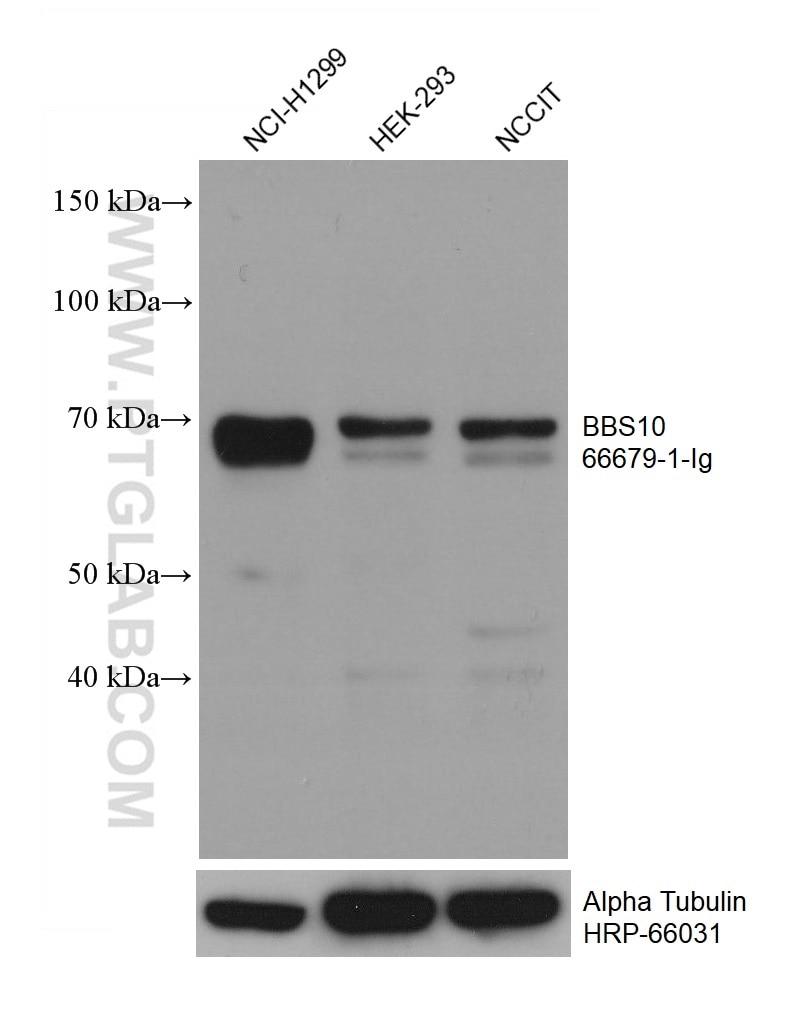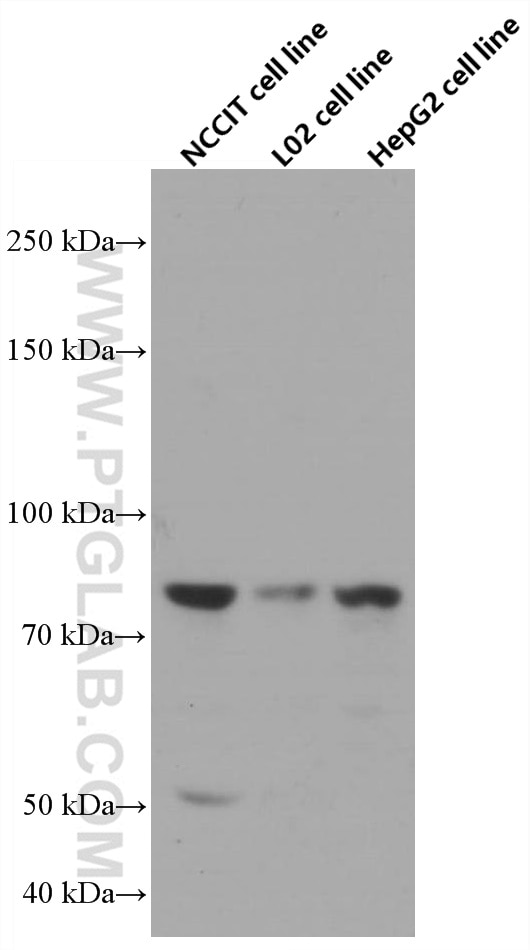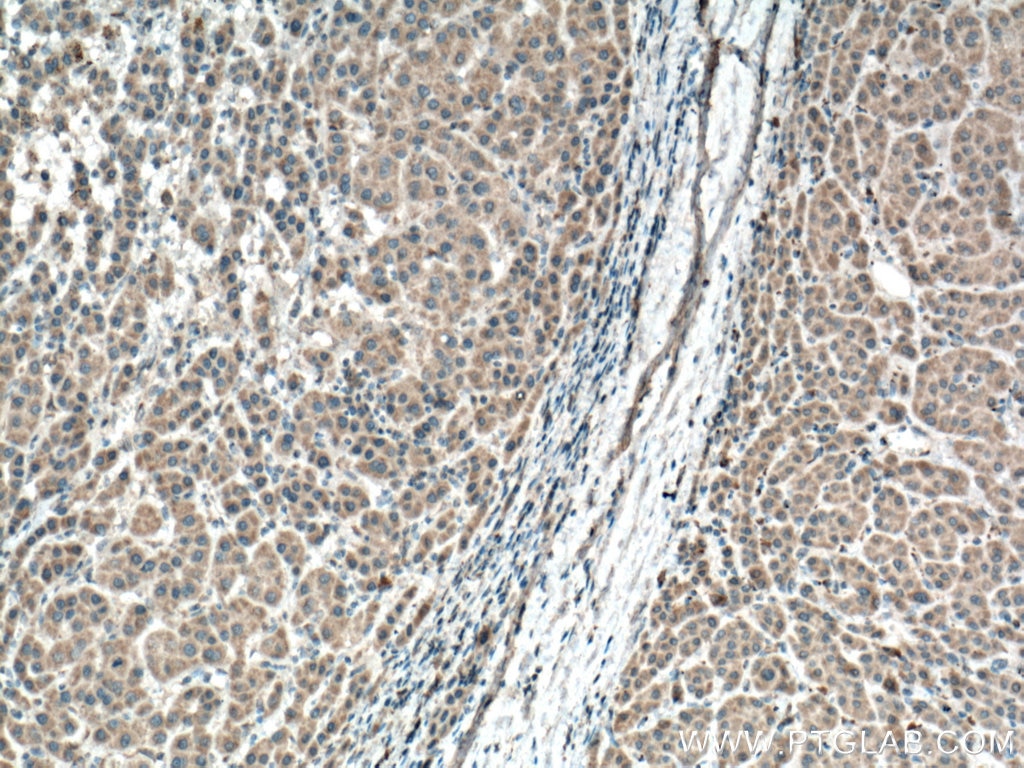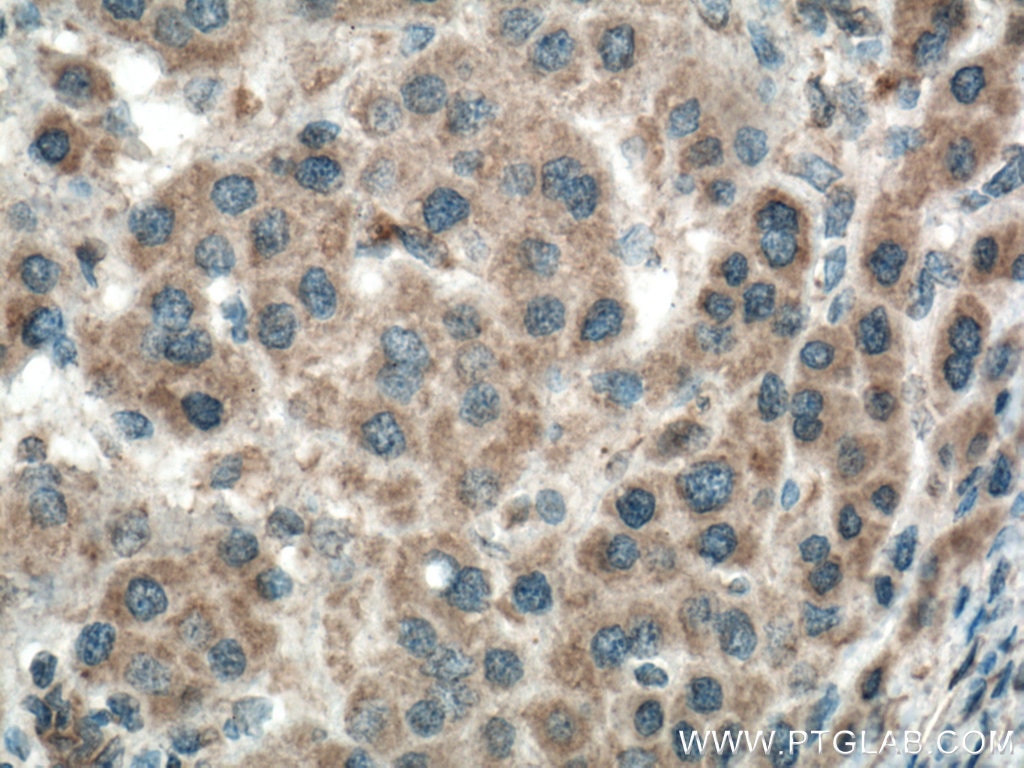Anticorps Monoclonal anti-BBS10
BBS10 Monoclonal Antibody for WB, IHC, ELISA
Hôte / Isotype
Mouse / IgG2b
Réactivité testée
Humain
Applications
WB, IHC, ELISA
Conjugaison
Non conjugué
CloneNo.
4C6A10
N° de cat : 66679-1-Ig
Synonymes
Galerie de données de validation
Applications testées
| Résultats positifs en WB | cellules NCI-H1299, cellules HepG2, cellules L02, cellules NCCIT |
| Résultats positifs en IHC | tissu de cancer du foie humain, il est suggéré de démasquer l'antigène avec un tampon de TE buffer pH 9.0; (*) À défaut, 'le démasquage de l'antigène peut être 'effectué avec un tampon citrate pH 6,0. |
Dilution recommandée
| Application | Dilution |
|---|---|
| Western Blot (WB) | WB : 1:1000-1:6000 |
| Immunohistochimie (IHC) | IHC : 1:150-1:600 |
| It is recommended that this reagent should be titrated in each testing system to obtain optimal results. | |
| Sample-dependent, check data in validation data gallery | |
Informations sur le produit
66679-1-Ig cible BBS10 dans les applications de WB, IHC, ELISA et montre une réactivité avec des échantillons Humain
| Réactivité | Humain |
| Hôte / Isotype | Mouse / IgG2b |
| Clonalité | Monoclonal |
| Type | Anticorps |
| Immunogène | BBS10 Protéine recombinante Ag17960 |
| Nom complet | Bardet-Biedl syndrome 10 |
| Masse moléculaire calculée | 81 kDa |
| Poids moléculaire observé | 81 kDa |
| Numéro d’acquisition GenBank | BC013795 |
| Symbole du gène | BBS10 |
| Identification du gène (NCBI) | 79738 |
| Conjugaison | Non conjugué |
| Forme | Liquide |
| Méthode de purification | Purification par protéine A |
| Tampon de stockage | PBS with 0.02% sodium azide and 50% glycerol |
| Conditions de stockage | Stocker à -20°C. Stable pendant un an après l'expédition. L'aliquotage n'est pas nécessaire pour le stockage à -20oC Les 20ul contiennent 0,1% de BSA. |
Informations générales
BBS10, also named as C12orf58, belongs to the TCP-1 chaperonin family. It is probable molecular chaperone. Assists the folding of proteins upon ATP hydrolysis. As part of the BBS/CCT complex, BBS10 may play a role in the assembly of BBSome, a complex involved in ciliogenesis regulating transports vesicles to the cilia. Involved in adipogenic differentiation. (PMID: 20080638, 19190184) Defects in BBS10 are the cause of Bardet-Biedl syndrome type 10 (BBS10).
Protocole
| Product Specific Protocols | |
|---|---|
| WB protocol for BBS10 antibody 66679-1-Ig | Download protocol |
| IHC protocol for BBS10 antibody 66679-1-Ig | Download protocol |
| Standard Protocols | |
|---|---|
| Click here to view our Standard Protocols |





